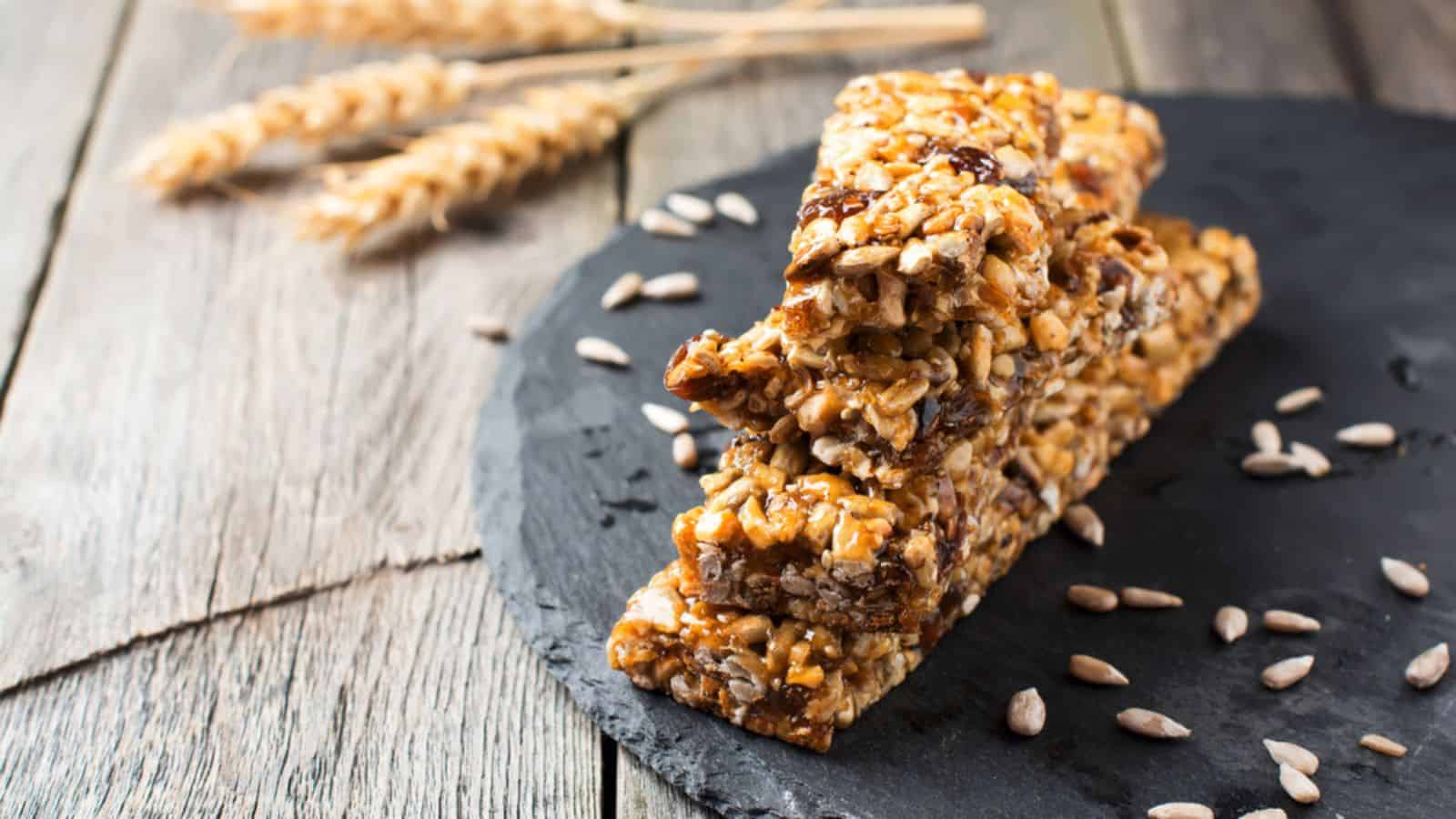People are often surprised to learn how many of their favorite, seemingly innocent snacks are actually hiding an unhealthy secret: sugar. For those aiming to cut back on their sugar intake, here’s a closer look at popular snacks you really shouldn’t be entertaining.
Fruit Snacks

Everybody loves fruit, and they’re super healthy, but fruit-based snacks don’t always reflect this. In fact, they’re usually laden with sugar, being composed primarily of fruit juice concentrates and corn syrup. This replaces the healthy sugars of fruits with artificial alternatives, making them far less healthy than they might seem.
Smoothies

Just like fruit snacks, store-bought smoothies can contain a surprising amount of sugar. Companies often add ingredients like fruit juice, sweetened yogurt, and honey to make them taste better, turning a healthy beverage into a sugar bomb. Making your own smoothies at home can easily avoid this.
Cereal

Shockingly, breakfast cereals, especially those marketed to children, can be disturbingly high in sugar. Even seemingly healthy options such as granola or bran flakes often contain added sugars to enhance their flavor, making them less nutritious. Plain, unsweetened cereals, or even oatmeal, are far better options for breakfast.
Yogurt

Many flavored yogurts contain high amounts of added sugar, with some varieties having up to 20 grams of sugar per serving. According to Healthline, that’s over half of the daily recommended limit, making this seemingly healthy option quite deceptive. So, always check the nutritional label before purchasing yogurt.
Granola Bars

On the surface, granola bars seem pretty nutritious, and while this is partially true, they’re also loaded with added sugars. Many brands include sweeteners like high-fructose corn syrup, making them closer to candy bars than a healthy snack. Sadly, being a healthy snack is precisely how brands market granola bars.
Flavored Oatmeal

There’s no denying that oatmeal is healthy, but instant oatmeal packs, especially those that are flavored, tend to contain excessive sugar levels. A single serving can have up to 12 grams of sugar, transforming a wholesome meal into a sugary indulgence, which can quickly add up if consumed regularly.
Protein Bars

While convenient, especially after exercise, protein bars are packed with sugar and sweeteners. Most brands use sugar to improve their taste, resulting in bars with sugar levels that resemble those of candy bars. As an occasional treat, they’re fine, but natural proteins are much healthier for daily consumption.
Dried Fruit

It’s a tough pill to swallow, but dried fruit contains a concentrated amount of sugar, hence why they taste so good. Some brands even add sugar to enhance flavor, significantly decreasing their nutritional value. This makes dried fruit much less healthy compared to fresh fruit, so consume it in moderation.
Sports Drinks

Despite the marketing, sports drinks aren’t healthy, even after a workout. They’re often loaded with sugar, with a single bottle sometimes containing over 30 grams of sugar. Thankfully, plenty of sports drink alternatives out there provide the electrolytes your body craves without being packed with sugar.
Ketchup

Few people realize that ketchup is a sneaky source of sugar; most brands add it to balance the acidity of tomatoes, resulting in about 4 grams per tablespoon. This can quickly add up if used generously, and unfortunately, lots of people consume ketchup with at least one meal a day.
Salad Dressings

“Low-fat” or “light” bottled salad dressings frequently include added sugar for flavor enhancement, which can be incredibly misleading. Several grams of sugar can be found in a typical serving, which completely counteracts a salad’s healthiness, converting it into a sugar-laden meal.
Peanut Butter

While traditional peanut butter is a protein-packed health food, the stuff you find in stores generally includes added sugars. Sweetened versions can contain up to 4 grams of sugar per serving, destroying their nutritional value. Opting for natural, unsweetened versions is a healthier choice, or better still, make your own.
Muffins

Unfortunately, despite their innocent appearance, muffins are usually loaded with unhealthy sugars. A single muffin can contain upwards of 20 grams of sugar, making this seemingly harmless snack a form of junk food. Treat yourself to one occasionally, but don’t go overboard.
Instant Tea

There’s nothing wrong with tea, which never contains sugar, but flavored instant teas bought in stores have a lot of added sugars. This makes instant tea more akin to a soda, and while choosing unsweetened varieties can help reduce unnecessary sugar intake, it’s best to stick to making your own.
Crackers

Certain types of crackers, especially flavored or “sweet” varieties, can have added sugars, not to mention their high salt content. Checking the ingredient list is essential to avoid hidden sugars in what seems like a savory snack, ensuring that you’re not giving your body a surprise dose of sugar.
Frozen Meals

Despite their convenience, many frozen meals, particularly those labeled “diet” or “healthy,” can contain excessive amounts of sugar, often to mask their questionable ingredients. This can make even the most savory-ready meals unexpectedly sugary, so don’t forget to read their labels before purchasing.
Bread

Shockingly, “whole grain” or “multigrain” bread loaves are usually secretly loaded with sugar, which is outrageous considering that they’re marketed as healthy alternatives to white bread. There are plenty of sugar-free bread options available, but you’ll need to read the ingredient lists closely to find what you’re looking for.
Tomato Soup

Just like with ketchup, tomato-based soups usually contain a lot of sugar to balance out the tomato’s acidity. It’s frustrating because this turns an otherwise healthy meal into a sugar rush. Other soup varieties can be just as bad, so it’s best to make your soup from scratch at home.

